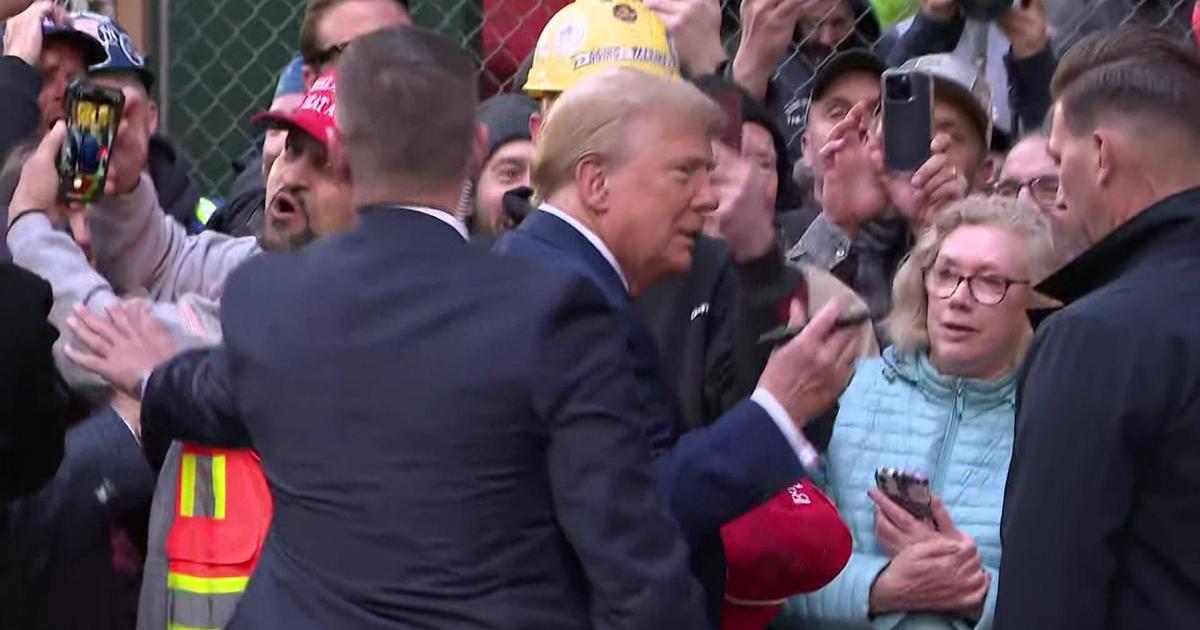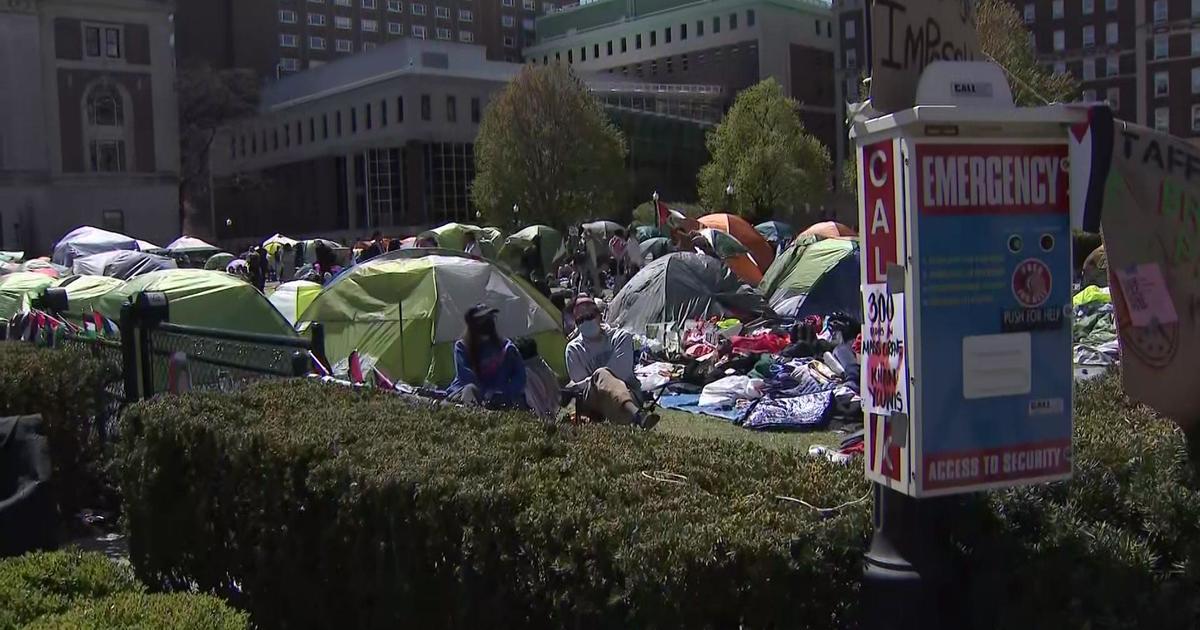Senate Votes To 'Go Nuclear,' Eliminates Filibuster On Gorsuch Nomination
WASHINGTON (CBSNewYork/AP) -- The Senate has voted to "go nuclear" and eliminate the filibuster for President Donald Trump's Supreme Court nominee and future court picks.
The move could change the Senate and court for generations. It came Thursday on a procedural motion.
The change is dubbed "the nuclear option." It removes a 60-vote filibuster requirement for Neil Gorsuch. The Senate is expected to confirm the appellate court judge on Friday.
Senate Majority Leader Mitch McConnell raised a point of order to change the rules "under the precedent set on Nov. 21, 2013," when Senate Democrats who were then in the majority made the same move for lower court and executive branch nominations.
Democrats blocked President Donald Trump's Supreme Court nominee with a historic filibuster on the Senate floor, but their victory was short-lived.
"We will sadly point to today as a turning point in the history of the Senate and the Supreme Court," Minority Leader Chuck Schumer said.
The first vote was 55-45, short of the 60 needed to advance Gorsuch over procedural hurdles to a final vote. All 44 Democrats and independents voted against advancing Gorsuch, and for procedural reasons, McConnell cast his vote with them to enable the vote to be reconsidered.
McConnell then prepared to make procedural maneuvers to lower the vote threshold to advance Gorsuch's nomination from the current 60 votes to a mere majority in the 100-member Senate. He did so using what's called a cloture vote.
Some Democrats were critical, CBS2's Jessica Moore reported.
"Every time in the history of this country that a Supreme Court nominee has failed to earn the necessary votes to pass the Senate, the answer has been to change the nominee not the rules," Schumer said.
"I hoped, perhaps naively, that we could discuss a way forward that both our parties could live with. Unfortunately, there were no counter offers or discussions offered by the other side," he added.
"Judge Gorsuch was unable to earn 60 votes," Schumer later tweeted. "Now the GOP is about to change Senate rules to allow all SCOTUS noms to pass by majority vote."
He is expected to be confirmed on Friday and take his seat on the court later this month, in time to hear the final cases of the term.
The maneuvering played out with much hand-wringing from all sides about the future of the Senate, as well as unusually bitter accusations and counter-accusations as each side blamed the other for bringing the Senate to this point.
McConnell accused Democrats of forcing his hand by trying to filibuster a highly qualified nominee in Gorsuch, 49, a 10-year veteran of the 10th U.S. Circuit Court of Appeals in Denver with a consistently conservative record. McConnell vowed that the rules change would block the Gorsuch filibuster, and all future ones, a change many lawmakers lamented could lead to an even more polarized Senate, court and country.
"This will be the first, and last, partisan filibuster of a Supreme Court nominee," McConnell insisted. "This is the latest escalation in the left's never-ending judicial war, the most audacious yet, and it cannot and will not stand."
Supreme Court filibusters have been nearly unheard of in the Senate, but the confrontation is playing out amid an explosive political atmosphere with liberal Democrats furious over the Trump presidency and Republicans desperate to get a win after months of chaos from Trump.
And Democrats remain livid over McConnell's decision last year to deny consideration to then-President Barack Obama's Supreme Court nominee, Judge Merrick Garland, who was ignored for nearly a year by Senate Republicans after the death of Justice Antonin Scalia. Instead, McConnell kept Scalia's seat open, a calculation that is now paying off hugely for Republicans and Trump, who will be able to claim the biggest victory of his presidency to date if Gorsuch is confirmed as expected.
"We believe that what Republicans did to Merrick Garland was worse than a filibuster," Schumer said. "We didn't hear two words in the long speech of Senator McConnell: Merrick Garland."
Senators on both sides of the aisle lamented the trajectory they were on toward the Senate rules change, though they themselves were in position to prevent it from happening and failed to do so.
Moderate Republican Sen. Susan Collins of Maine said roughly 10 senators of both parties worked over the weekend to come up with a deal to stave off the so-called "nuclear option," as the rules change is known, but couldn't come to agreement. In 2005, a bipartisan deal headed off GOP plans to remove the filibuster barrier for lower-court nominees, but in 2013 Democrats took the step, leaving the filibuster in place only for Supreme Court justices.
"They didn't win playing by the rules. They had to change the rules," said Sen. Richard Blumenthal, D-Conn.
"I fear that someday we will regret what we are about to do. In fact, I am confident we will," said Sen. John McCain, R-Ariz. "It is imperative we have a functioning Senate where the rights of the minority are protected regardless of which party is in power at the time."
Nonetheless, McCain was prepared to vote with McConnell on the rules change, saying he felt he had no choice.
A final confirmation vote for Gorsuch is scheduled for Friday, when all 52 Republicans and at least three Democrats are expected to vote to confirm him to the Supreme Court.
(© Copyright 2017 CBS Broadcasting Inc. All Rights Reserved. The Associated Press contributed to this report.)



